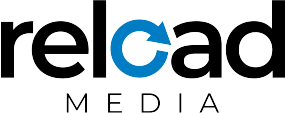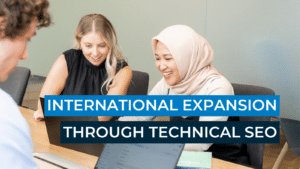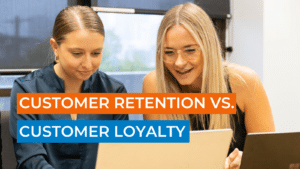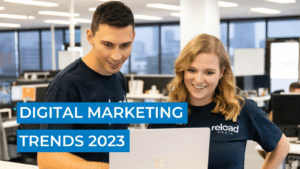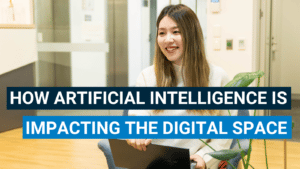Yes, keywords and content still play a role in today’s SEO, but the way in which Google understands, and organises search engine results page’s (SERPs), is changing.
As I sit here, in my Airbnb in Seattle, it hasn’t quite hit me as to what I’ve just endured. Flying over 11,000 kilometres to the birthplace of Amazon and Starbucks, my time in Seattle was short, but it was a privilege to be a part of one of the finest SEO conferences to date: Mozcon 2018.
As a solo traveller to Mozcon, or of any conference for that matter, you’re put in a position where striking up conversation with the person next to you is a must. The sooner the better, too. If you’re still having that conversation with somebody on day 3 and they’re like, “so, do you work agency or in-house” you can just forget it. You regurgitated yourself that much; emotion and excitement seeped away.
But it wasn’t my peers or Mozcon colleagues that got the juices going when I started explaining the change in digital marketing. It was two chaps, called Mike and Richard who I met at a bar, in downtown Seattle, that made me aware of Google’s evolution.
Now, before I get into it, I will firstly say that the opportunity given to me, to attend a conference such as Mozcon, is an experience I won’t be forgetting in a hurry. To see the institution, that is Moz, as well as keynote speaker, Rand Fishkin, was a momentous occasion. But, for all the sessions I sat through (roughly 26) there were only a handful of talks that really struck a chord with me
In-amongst these talks were presentations on what you’d expect at a conference dedicated towards SEO (think content, user-journey, reporting, keyword research, data cleansing, ROI, local SEO, reviews, etc.), but these were either
a) not that engaging;
b) have heard a million times before; or
c) are already being executed, here at Reload.
The real eye-opener was the discussion on what we’re experiencing in Google search and how ultimately it affects the way a website performs in Google.
A Whole New Google
In the main, companies large or small have a presence online, largely in the format of a website. And, no doubt SEO, has crossed their mind as a possible tactics when exploring avenues as to how they can get their website to gain better exposure online.
As SEO’s, a lot of what we know and understand to date, when attempting to improve a brands exposure online, has come down to influencers such as keywords and links – which means we are more often than not, optimising websites.
But that is (and has been) changing.
Cindy Krum, a speaker at this year’s Mozcon, describes the change this way:
‘Historically, Google’s reliance on links and keywords as the primary means of surfacing content in a search, has rejected the idea that the world has some larger order, hierarchy or organising principle than language. But it does – it has entities!’
The official word of Mozcon 2018 is “entity”. #MozCon
— Jeremy Harrison (@JeremyFHarrison) July 11, 2018
So what, exactly, are entities?
In layman’s terms, entities is a process by which Google strives to understand and organise the relationships between different thoughts, concepts, ideas and things and their modifying descriptors. In other words, Google is organising content by more than just a keyword, or an authoritative link. By doing so, the way in which Google indexes it’s information, and thus organises content to the user, is affected.
This new way of organising and understanding content has traditionally been thought of as just websites, but in fact it’s much more than that.
Google used to index content via the link graph, but that is not an efficient method as it looks beyond websites for crawling. Google will still crawl websites, but it won’t be nearly as critical.
More efficient methods:
-Feeds
-APIs
-Databases— Tylor Hermanson (@MyNameIsTylor) July 9, 2018
Which means…
And guess what, we’ve seen this happening for a while…
Google hosts their own database of entity understanding.
And we call it the Knowledge Graph.
The situation we find ourselves in is that content from other platforms and mediums are having in an impact on what is served up to us online. Entities such as Knowledge Graph, Topic Carousels, App Packs, Map Packs, and other elements that so often surface at the top of SERPs now, do so without any influence of links at all.
Again, back to Cindy Krum:
‘Entity understanding has existed at Google for a long time, but it has not been core to indexing; It has been a modifier. I believe that the shift to Mobile-First Indexing is a reorganisation of the index.’
“Search is obsessed with giving you the answers quickly, and giving you what you want”. The entity panels, transactional suggestions, etc. in Google are becoming the digital storefront before entering a website. ???? #MozCon (@DarrenShaw_ ‘s presentation)
— Mallory (@malthoms_) July 11, 2018
Google’s goal is to surface the most useful information to the searcher, and sometimes that will depend on the context that they are searching in. Google wants to serve their users, and the best information for their users may be a video, a song, a TV show, a deep link in an app, a web utility, an audio book, or an answer from the Knowledge Graph.
Here’s an example of the results returned when you search for “World Cup 2018”.
Just look at the above! In fact, There’s no mention of a dedicated URL before the fold – in fact, there are only 6 “blue links” listed on the first page of Google for this result. Google’s entity-indexing means that results being pulled in from Twitter, YouTube, Newspapers, Knowledge Graph, and even Google’s own curated content (at the top!).
So where to from here?
As we’ve discussed, performing well in search is now less reliant on keywords and links. Other entities are playing more of a role, and at the heart of this is your brand. From a search engine perspective, it is important to understand that domains can be entities, but often have larger entities like ‘brands’ above them in an entity hierarchy.
With this understanding of entities and what it means to indexing, the key takeout’s from my time at Mozcon, were the following:
- Build out Google entities: Google My Business pages, Google Plus brand pages, Knowledge Graph, etc.
- Optimize/ create non-domain entity content (podcasts, audio books etc.)
- Test text content for entity classification & understanding
So that’s my snapshot of time at MozCon and the new world of search in 2018.
Looking forward to doing it all again next year!
